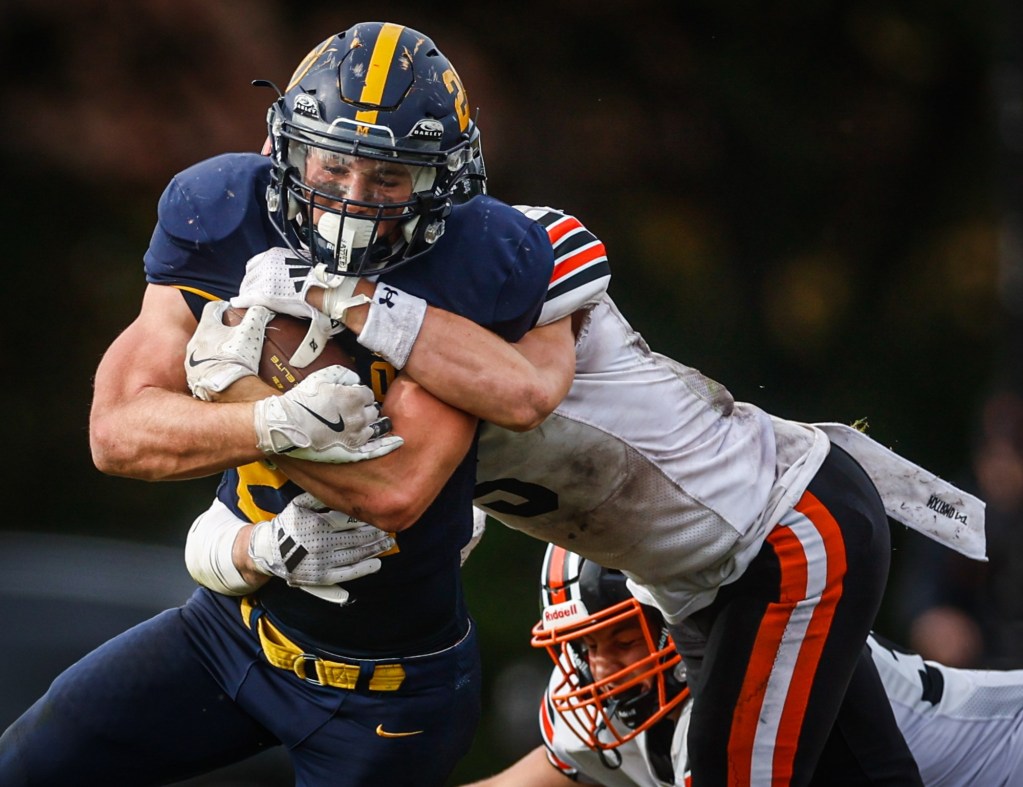
Menlo School has forfeited its upcoming football game against Wilcox due to a lack of healthy players, following a demanding 28-0 defeat to Los Gatos. This decision marks a significant moment in the Peninsula Athletic League Bay Division, as it reflects broader challenges faced by high school football programs in the Bay Area. With this forfeit, Menlo’s record now stands at 7-2, eliminating them from contention for the PAL Bay title with just one week remaining in the season.
The announcement, made on Tuesday, underscores the difficulties that schools across the region are experiencing with player availability. Menlo’s head coach, Todd Smith, expressed the urgency of the situation, stating, “We need more kids to play football here.” He emphasized the importance of ensuring players’ health and safety, highlighting the need for a sustainable program that allows young athletes to enjoy the game without compromising their well-being.
Menlo’s current roster includes only 26 varsity players, with just 24 available for the match against Los Gatos. Coach Smith noted that the number of players would have likely decreased further for the scheduled game against Wilcox, prompting the decision to forfeit. This situation is not unique to Menlo; it reflects a troubling trend impacting schools of all sizes, both public and private, especially within small private institutions trying to maintain their football programs.
Shifts in High School Sports Landscape
The forfeit raises questions about the future of high school football in a region where interest appears to wane. While Menlo’s football team struggles, their girls’ flag football team is thriving, ranking as the top team in the Bay Area News Group’s flag football standings. The growth of flag football has been remarkable since it became an official high school sport in 2023, with participant numbers surging by 84% according to the California Interscholastic Federation. In contrast, tackle football saw only a marginal increase of 1.9% in participation, indicating that many programs, particularly in the Bay Area, are on the brink of discontinuation.
The dynamic shift towards flag football comes amid increasing scrutiny of the safety of tackle football, particularly for younger players. Discussions surrounding the sport’s safety have intensified, with questions raised about its appropriateness for high school athletes. A recent article in the Los Angeles Times posed a provocative question: “If tackle football isn’t safe for girls, why do we let boys play?”
As the sports landscape evolves, the impending introduction of boys’ flag football—especially with its inclusion in the 2028 Los Angeles Olympics—could further influence participation rates in traditional tackle football. The reality for Bay Area high schools is clear: they must assess their player pools and determine how to sustain viable football programs moving forward.
Future of High School Football
The situation at Menlo School serves as a microcosm of the challenges facing high school football across the country. With dwindling rosters and rising safety concerns, schools are left grappling with the harsh reality of maintaining their teams. Menlo’s decision to forfeit encapsulates the broader issues at play, reflecting a critical juncture in the sport’s future.
As schools navigate these challenges, the focus will remain on finding solutions that prioritize the health and safety of student-athletes while fostering a love for the game. For Menlo School and similar institutions, the coming years will be pivotal in determining the viability of their football programs and the overall health of high school sports in the region.
The future of high school football in the Bay Area remains uncertain, but the growing popularity of flag football may offer a new avenue for young athletes to pursue their passion in a safer environment. As these shifts continue to unfold, stakeholders will need to adapt to the evolving landscape of high school sports, ensuring that all students can access opportunities that promote both health and athleticism.







